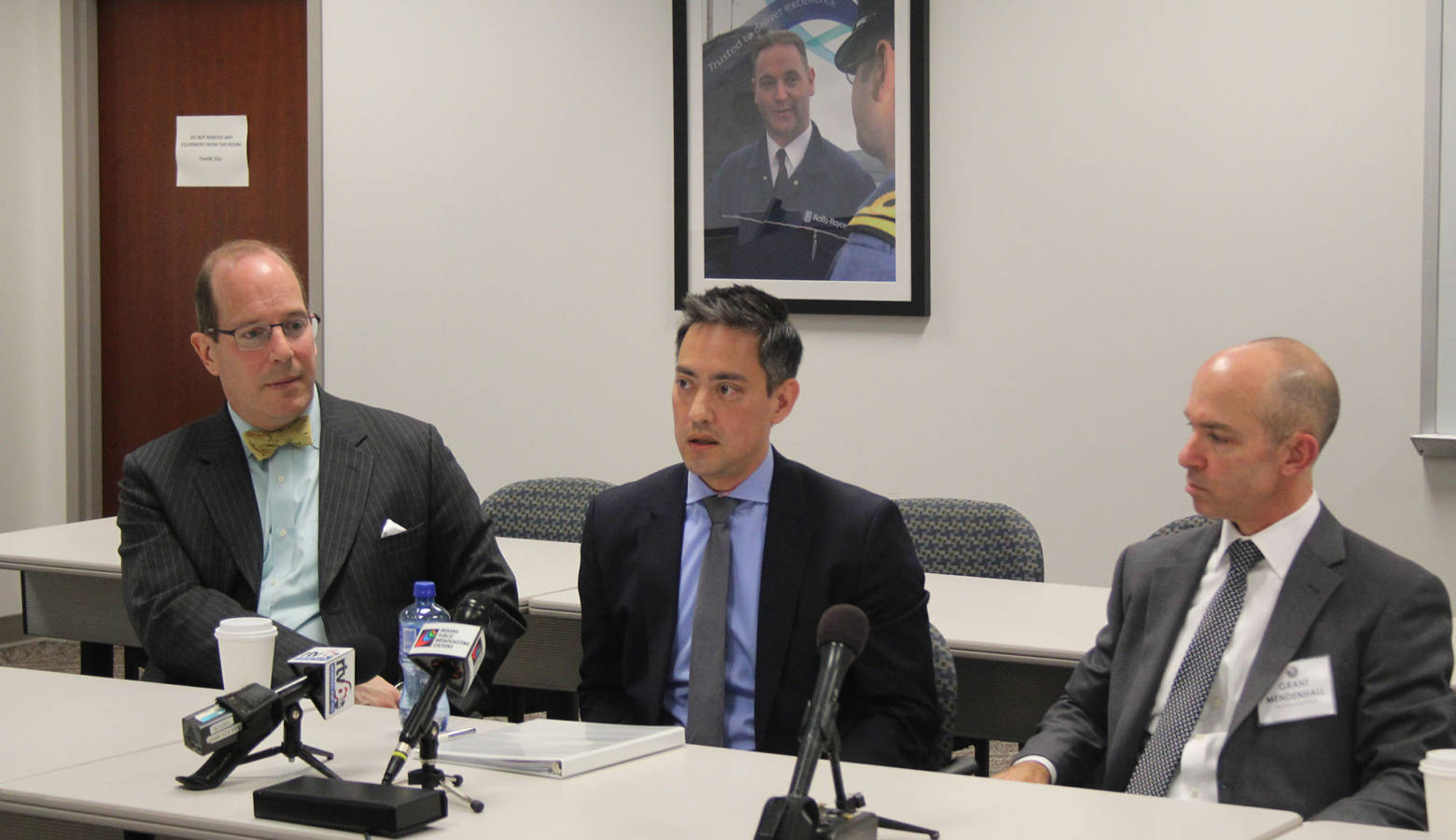Federal Agencies Meet With Businesses, Educators To Discuss Economic Espionage

Representatives of several federal agencies met with Indiana business and university leaders Thursday to discuss current threats to technology exports the possibility of what they call “economic espionage.”
Economic espionage is the act of stealing information or trade secrets and intentionally sharing them to benefit foreign governments. Trump administration officials have cited intellectual property theft by the Chinese as one reason for tariffs on the Asian nation.
Grant Mendenhall is an FBI special agent in Indianapolis and says Indiana is not immune to economic espionage.
“Based on our research facilities and our universities, our military facilities, our clear defense contractors that are scattered around the state supporting the federal government,” says Mendenhall. “It’s not unique to the state of Indiana.”
Assistant Secretary of State Chris Ford says protecting U.S. technology exports is an ongoing challenge.
“We’re engaged in a game of whack-a-mole against people who are very smart, sophisticated folks trying to do this technology transfer game and our institutions are contributing in various complementary ways to try to address the problem,” he says.
Ford says there have been several criminal prosecutions using the Economic Espionage Act of 1996, including one in 2011 where Dow AgroSciences sued a Carmel resident and Chinese national for sharing trade secrets with the Chinese government.
But Department of Commerce Chicago Special Agent Dan Clutch says there are other punishments, too.
“We have a whole range of options available to us with the whole government approach to address this problem that might not look like criminal prosecutions,” he says. “For example, our organization has administration authorities where we can mete out fines, we can deny export privileges to companies.”
The panelists didn’t offer many public suggestions for how companies and schools might protect themselves, other than suggesting better information sharing.

